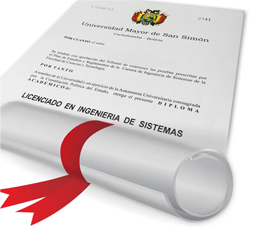 Bolivian-educated engineers come from a five-year program at the university. The universities have access to the same technologies as schools in other countries, including the United States. Classes are geared toward a specific field of study, for example, computer science. Students study all required subjects, giving them a very good background, in order to perform in areas like development, quality assurance or whatever their job requires. The curriculum involves a great deal of research, to ensure that each student is up to speed on the latest technology.
Bolivian-educated engineers come from a five-year program at the university. The universities have access to the same technologies as schools in other countries, including the United States. Classes are geared toward a specific field of study, for example, computer science. Students study all required subjects, giving them a very good background, in order to perform in areas like development, quality assurance or whatever their job requires. The curriculum involves a great deal of research, to ensure that each student is up to speed on the latest technology.
For example, Bolivian universities use Java as well as .NET. Depending on the course of study, students will learn to assemble, study artificial intelligence or learn about the fusion of programming. The computer science program is a very complete curriculum, combining book knowledge with real-life experience.
Bolivian universities have recently started using an Agile approach for the software engineering program. Students are presented with different tools, like source control emerging, to create a project in which they collaborate as a team. The team will then report their findings. A hands-on experience allows the students to experiment with the knowledge provided in the classroom, allowing them to be ready for the workplace upon graduation. Although Bolivian universities are in the very early stages of receiving the latest technology, most equipment is up to par with other universities in the region. Students are using the same tools inside the classroom that they will use while on the job.
Despite the fact that Bolivian universities – especially the public schools – have some infrastructure issues, the academic level is equal to that of an American university. Infrastructure issues mean that the public universities are unable to accommodate many students. This opens the doors for private facilities. Since private education abounds, it is more affordable and is attracting students from across the region. The universities are also popular with students from other countries, who are looking for quality education at a lower price. Bolivian universities work with both Europe and the United States on exchange programs. A degree from a Bolivian university is transferrable back to most students’ home countries.
An engineer that has attended a Bolivian university will be equipped with the appropriate coursework and real-life experience, to perform at a high level in the workplace. Since the knowledge and experience is transferrable, they are able to work anywhere in the world once they graduate.